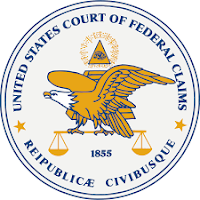- On December 22, 2017, Congress enacted the "Tax Cuts and Jobs Act," P.L. 115-97 (the "Act").
- Act section 14101 enacted section 245A. Section 245A(e)(2) provides for a new subpart F inclusion for income from hybrid dividends of tiered corporations. As a result, new line 1b was added to Schedule I. See the instructions for Schedule I, line 1b for additional information. Also, as a result of Act section 14101(e), new lines 9 and 22 were added to separate Schedule M.
- Act section 14102(c)(1) added section 964(e)(4), which provides for a new subpart F inclusion for dividend income from the sale of stock of a lower-tier foreign corporation. As a result, new line 1a was added to Schedule I. See the instructions for Schedule I, line 1a for additional information.
- Act section 14103 amended section 965 to require certain taxpayers to include in income an amount (section 965(a) inclusion amount) based on the accumulated post-1986 deferred foreign income of certain foreign corporations that they own either directly or indirectly through other entities.
- Act section 14201(a) enacted section 951A. This new code section requires U.S. shareholders of controlled foreign corporations (CFCs) to report the inclusion of global intangible low-taxed income (GILTI) for years in which they are U.S. shareholders of CFCs. Section 951A is effective for tax years of foreign corporations beginning after December 31, 2017, and to tax years of U.S. shareholders in which or with which such tax years of foreign corporations end. Use Form 8992, U.S. Shareholder Calculation of Global Intangible Low-Taxed income, to figure a U.S. shareholder’s GILTI inclusion. Also complete separate Schedule I-1 (Form 5471) to report information determined at the CFC level with respect to amounts used on Form 8992 in the determination of a U.S. shareholder's GILTI inclusion.
- Act section 14201(b)(2)(A) amended section 904(d)(1) by adding a new foreign tax credit limitation separate category for section 951A income. As a result, Schedules, E, J, and P, for example, may be completed for this new separate category, if applicable.
- Act section 14202 enacted section 250, which allows certain domestic corporations a deduction for the eligible percentage of foreign-derived intangible income (FDII) and GILTI. Section 250 is effective for tax years beginning after December 31, 2017. Use Form 8993, Section 250 Deduction for Foreign-Derived Intangible Income (FDII) and Global Intangible Low-Taxed Income (GILTI), to figure this deduction.
- Act section 14211 amended section 954(a) to eliminate foreign base company oil related income from the calculation of foreign base company income. As a result, Worksheet A and instructions were modified.
- Act section 14212 repealed the section 955 subpart F inclusion based on withdrawal of previously excluded subpart F income from qualified investment. As a result, old line 3 of Schedule I was deleted. Also, old Worksheet C and instructions were deleted. Also note that old Worksheet D is now Worksheet C.
- Act section 14214 amended section 951(b) to modify the definition of U.S. shareholder, and Act section 14213 amended section 958(b) to modify attribution rules applicable for determining whether a U.S. person is a U.S. shareholder and whether a foreign corporation is a CFC.
- Act section 14215 amended section 951(a)(1) by eliminating the requirement that a CFC must be controlled for 30 days before subpart F inclusions apply. As a result, the definition of Category 5 filer has been amended.
- Act section 14222 enacted section 267A. Under section 267A, a deduction for certain interest or royalty paid or accrued to a related party pursuant to a hybrid transaction or by, or to, a hybrid entity may be disallowed to the extent the related party, under its tax laws, does not include the amount in income or is allowed a deduction with respect to the amount.
- Act section 14301 repealed section 902 (deemed paid credits with respect to dividends) and amended section 960 (deemed paid credits for subpart F inclusions and GILTI inclusions). As a result, we amended Schedules E and J, and related instructions.
- Act section 14401 enacted section 59A, Tax on Base Erosion Payments of Taxpayers with Substantial Gross Receipts. The new section 59A imposes on each applicable taxpayer a tax equal to the base erosion minimum tax amount for the tax year. Section 59A applies to base erosion payments paid or accrued in tax years beginning after December 31, 2017.
-
Schedule B, Part II, is new. It is used to provide information about direct shareholders of the foreign corporation. For details, see specific instructions for Schedule B, Part II, later.
-
Schedule C, lines 8a and 8b are new. These lines are used to report foreign currency transaction gain or loss. Lines 19 through 24 are either new or reworded to reflect updated GAAP rules.
-
Schedule F, lines 3 and 17 are new. They are used to report derivatives. They were added to reflect the rules of Act section 14103 (specifically, derivatives are considered cash for section 965 purposes).
-
Schedule G, lines 4, 5, and 6 are new. These lines are used to answer questions about base erosion payments and benefits under section 59A, interest or royalty amounts paid or accrued for which the deduction is disallowed under section 267A, and foreign-derived intangible income deductions under section 250. These lines were added to reflect Act sections 14401, 14222, and 14202, respectively.
-
Schedule G, lines 9, 10, 11, and 12 are new. These lines are used to answer questions about cost sharing arrangements. These lines were added to reflect Regulations section 1.482-7.
-
Schedule G, line 13 is new. This line is used to answer a question about triangular reorganizations within the meaning of Regulations section 1.358-6(b)(2).
-
Schedule G, lines 14a and 14b are new. These lines are used to answer questions about transfers of intangibles. These lines were added to reflect section 367(d).
-
Schedule G, line 15 is new. This line is used to answer a question about whether the foreign corporation is an expatriated foreign subsidiary under Regulations section 1.7874-12(a)(9).
-
Schedule G, line 19 is new. It refers filers to a series of questions in the instructions for line 19. For each question for which the answer is “Yes,” the filer is required to enter the corresponding code from the instructions and attach a statement.
-
Schedule I, line 1a is new. This line is used to report section 964(e)(4) subpart F dividend income inclusions. Line 1a was added to reflect Act section 14102(c)(1).
-
Schedule I, line 1b is new. This line is used to report section 245A(e)(2) subpart F income inclusions. Line 1b was added to reflect Act section 14101(a).
-
Old line 3 of Schedule I was deleted to reflect the repeal of the section 955 subpart F inclusion. This line was deleted to reflect Act section 14212.
-
Schedules E and H are now separate schedules (no longer part of the base Form 5471) because these schedules must now be completed separately for each applicable category of income. New lines a and b have been added to these schedules to identify the category of income for which a given Schedule E or H is being completed. Furthermore, these schedules have been expanded as explained below.
-
Separate Schedule E has been expanded to request information pertaining to taxes for which a foreign tax credit is allowed and taxes for which a credit may not be taken. Furthermore, the schedule includes new Schedule E-1, which is used to report the current year changes in the cumulative balances of foreign income taxes paid or accrued by the CFC. For details, see specific instructions for Schedule E, later.
-
Separate Schedule H, line 2h is new. Line 2h is used to report foreign currency gains or losses.
-
Separate Schedule I-1 is new. It is used to report information with respect to amounts used in the determination of GILTI inclusions by U.S. shareholders under section 951A. For details, see specific instructions for Schedule I-1, later.
-
Separate Schedule J was expanded so that it also can be used to report accumulated E&P balances with respect to categories of previously taxed E&P resulting from the new types of income added by the Act (such as section 965(a) inclusions and GILTI inclusions).
-
Separate Schedule M, lines 9 and 22 are new. They are used to report hybrid dividends received and paid. These lines were added to reflect Act section 14101 (e). Lines 27 and 29 are also new. They are used to report accounts payable and accounts receivable.
-
Separate Schedule P is new. It is used to report previously taxed E&P of the U.S. shareholder of a CFC or SFC (see Category 1 Filer, below, for a definition of SFC). For more information, see the specific instructions for Schedule P, later.
-
Certain schedules must be completed separately for each applicable category of income. They are Schedules E, H, I-1, J, and P.
-
Note that Schedule M continues to be completed separately for each CFC.
Read more at: Tax Times blog


















